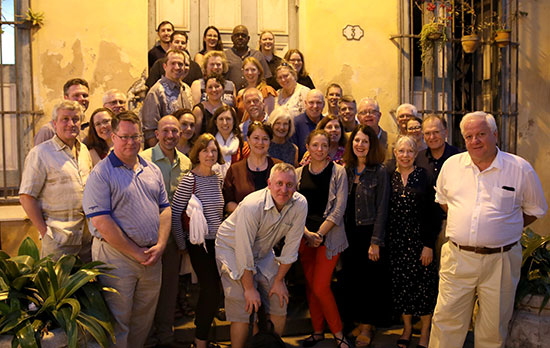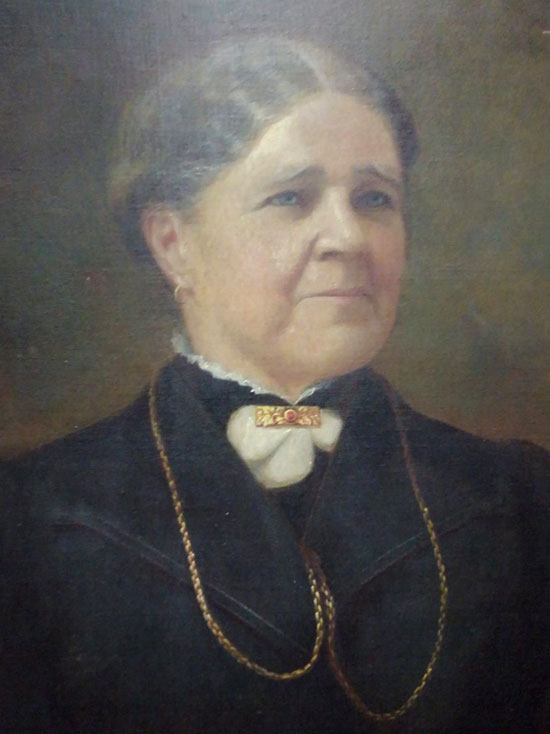Out There
Former West Virginia Supreme Court Judge Sentenced to Prison

Former West Virginia Supreme Court Justice Allen Loughry was sentenced in February to two years in federal prison after he was convicted on multiple counts of wire fraud. Federal prosecutors alleged that Loughry used government-issued credit cards and vehicles for personal travel as a justice, then lied about it. In all, he was charged on 22 counts.
Loughry was also convicted of tampering with a witness, a court administrator who testified about expensive office renovations – including a $32,000 suede couch – that Loughry initiated using taxpayer money.
Menis Ketchem, also a former justice on the West Virginia Supreme Court, pleaded guilty to wire fraud in 2018. Ketchem admitted to using state-issued gas cards and vehicles for personal golf outings while a justice on the court.
The entire West Virginia Supreme Court made national headlines last year when all five justices, including Loughry and Ketchem, faced impeachment trials. Only two of them remain on the court.
Sources: ABA Journal; West Virginia News; The Atlantic
Got a Nugget to Share?
Send your ideas for interesting facts, trends, tips, or other bits and bytes to wislawmag@wisbar.org, or comment below.
By the Numbers
151
– The number of vacancies in the federal judiciary, of the 890 total judgeships authorized in the federal system. That’s an increase of almost 30 vacancies from two years ago.
One way judgeships become vacant is when judges leave active (full-time) status to take senior status. About 70 federal judges have elected senior status in the last two years. One of the vacancies is in the U.S. District Court for the Eastern District of Wisconsin.
Judge Rudolph Randa took senior status in February 2016 and passed away later that year. There is no pending nominee. Another vacancy in the Eastern District of Wisconsin will occur when Judge William Griesbach moves to senior status in 2020.
Sources: U.S. Courts; Brookings Institution
Tech Tip
Don’t Take the Bait: Spotting Phishing Attempts

Email phishing continues to be one of the biggest threats to law firm data security – and it is only growing and getting more sophisticated. Phishing is the practice of sending emails seemingly from legitimate companies to induce individuals to reveal personal information. Successful phishing attacks can destroy electronic files and paralyze law firm operations.
Can you and your staff recognize phishing emails? Lawyers should train their staff frequently and invest in appropriate IT back-up systems to ensure they can avoid and recover from these attacks.
Now there’s a quick, free, and easy way to train staff on spotting phishing scams. Jigsaw, a Google affiliate, offers a free quiz to help users identify phishing attempts. Visit phishingquiz.withgoogle.com. Once there, the website will prompt you to enter a name and email address. Neither needs to be real. The website indicates that the information will not be sent to the server and should be cleared from your web browser after it’s closed.
The quiz generates a series of emails in your browser. It’s your job to determine whether the emails are legitimate.
After you respond, the correct answer will display, and you’ll have the opportunity to learn more about the question by clicking the “show me” button.
Source: Christopher C. Shattuck – Practice Management Advisor (Practice 411™), State Bar of Wisconsin
Good Ideas
Illinois Law Raises Minimum Wage to $15 Per Hour by 2025

In February, Illinois became the most recent state to enact minimum wage legislation, raising the current minimum wage of $8.25 per hour incrementally until it reaches $15 per hour in 2025. Illinois follows California, Massachusetts, New Jersey, and New York in incrementally raising the minimum wage to $15 per hour, the highest in the country.
Other states, such as Missouri and Michigan, have also enacted incremental minimum wage laws. Missouri will go from $8.60 to $12 per hour by 2023, and Michigan goes from $9.25 to $12.05 by 2030, through annual increases.
Some states tie minimum wage increases to cost of living adjustments, based on the consumer price index, or allow smaller employers (based on annual revenue thresholds) to keep minimum wages capped at $7.25.
Wisconsin’s minimum wage is $7.25 per hour. Legislation to raise the state minimum wage incrementally or allow increases through local minimum wage ordinances failed in the 2017-18 session.
Quotable
“Cuba was never on my bucket list, but I realize now that it should have been.”

– Monroe attorney Dan Bestul, one of more than 40 Wisconsin lawyers who did a CLE abroad in Cuba last month, a program sponsored by State Bar of Wisconsin PINNACLE® in collaboration with Cuba Cultural Travel.
The group heard presentations from Cuban lawyers and professors about the Cuban legal system, legal reforms, and U.S.-Cuban relations while exploring the Cuban culture in Havana and beyond.
From the Archives
Women’s History Month: Kate Hamilton Pier, the Matriarch

Lavinia Goodell is well-known as the first woman to be admitted to the Wisconsin bar in 1879. Lesser known is Kate Hamilton Pier, the eighth woman admitted to the Wisconsin bar and the matriarch of a family of women lawyers in Wisconsin.
According to the archives, Pier’s family moved to Fond du Lac from Vermont in 1845. Pier became one of the first businesswomen in the state when she assumed her father’s extensive real estate holdings in 1871. She raised four daughters with her husband, C.K. Pier, also a lawyer.
“In the fall of 1886, realizing that a law degree would be helpful to her real estate business, Kate entered the U.W. Law School with her oldest daughter (also named Kate Hamilton Pier),” according to Pioneers in the Law: The First 150 Women, published by the State Bar of Wisconsin in 1998.
The two Pier women graduated together in 1887, the matriarch’s 42nd birthday. Four years later, daughters Caroline Hamilton Pier Roemer and Harriet Hamilton Pier Simonds graduated from the U.W. Law School.
Eventually, the Pier family moved to Milwaukee and opened the Pier Law Office, where the four Pier women practiced. In 1891, the Pier matriarch was appointed as a Milwaukee County court commissioner, becoming the first women in the U.S. appointed to serve in a judicial capacity.
